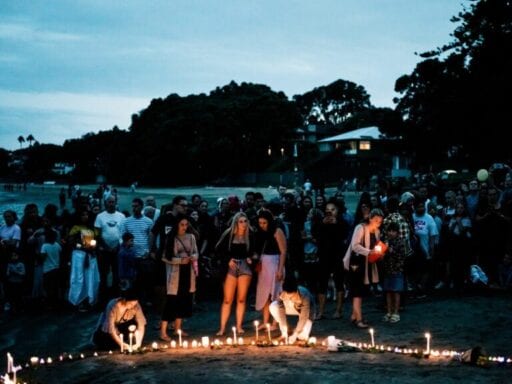The country’s prime minister and attorney general have mentioned banning semiautomatic firearms, but it’s far from a done deal.
Within hours of the mass shooting at the Al Noor and Linwood mosques in Christchurch Friday, controlling the sale of the types of guns used by the alleged killer became a top priority for New Zealand’s lawmakers. In a country that already has strong gun regulations, the debate over closing what the police association said were loopholes took on new urgency — so urgent that some politicians had to moderate statements they’d made in the hours after the attack.
New Zealand Attorney General David Baker, who had reportedly announced at a vigil Friday that the country would ban semiautomatic weapons, clarified Saturday the government has not yet reached that conclusion, Radio New Zealand reported.
“Those decisions have yet to be taken but the prime minister signalled that we are going to look at that issue,” Baker told the RNZ, adding that he intended only to lend support to the prime minister’s remarks, not go any further.
Prime Minister Jacinda Ardern unequivocally stated Friday that “our gun laws will change,” after announcing that the suspected shooter, Australian Brenton Tarrant, had obtained the weapons used to kill 49 people legally. Ardern did not elaborate on specific legislative or regulatory proposals.
The country already has far stricter gun laws than the United States does — unlike Americans, New Zealanders do not have a constitutional right to bear arms. As Vox’s German Lopez explained, gun owners in New Zealand must pass a firearms course and a background check that looks at their criminal history and associations before obtaining a license to buy any weapons:
Once a person makes it through the process, he’s allowed to purchase guns and ammo — although some types of firearms, like handguns and certain semiautomatic rifles, require “endorsements” from police and separate permits to purchase. There are also extra storage and inspection requirements.
The licenses have to be renewed every 10 years, and police can revoke a person’s license if that person is believed to no longer be fit for ownership and may pose a threat.
Despite these laws, however, police say gaps in what types of weapons can be licensed and how semiautomatic weapons are classified pose a threat to the public. Previous attempts to strengthen New Zealand’s gun laws have been defeated by what GunPolicy.org’s Philip Alpers told CNN was a “small but very strong” gun lobby.
New Zealand’s response is different than the United States’ “thoughts and prayers”
To be clear, semiautomatic weapons, a classification that itself can be imprecise, have not been banned in New Zealand yet. However, Baker and Ardern’s strong stance stands in stark contrast to the typical script followed by politicians in the United States, where even legislators who support gun control legislation typically first send their thoughts and prayers following a mass shooting.
Gun-control activists in the United States pointed out how quickly top New Zealand politicians moved to ban some of the types of firearms used in the attack. Shannon Watts, founder of Moms on Demand, an activist group formed after the Sandy Hook Elementary massacre that left 26, including 20 first-grade students, dead, linked inaction in the US Congress to the power of the NRA lobby.
Writing in response to the prime minister and attorney general’s calls to reexamine semiautomatic weapons, she said: “Imagine: elected officials putting public safety over gun manufacturers’ profits. Americans deserve better than lawmakers who are letting gun lobbyists write our nation’s gun laws.”
Others were a bit more sardonic.
They totally misspelled “thoughts & prayers”. https://t.co/M49iYeffcQ
— Solomon Georgio (@solomongeorgio) March 16, 2019
Since December 14, 2012, the day of the Sandy Hook school shooting, there have been 1,981 mass shootings in the United States. In 14 states, 25 measures calling for the arming of teachers have passed through state houses.
But few American lawmakers have called for an outright ban on semiautomatic weapons as Ardern and Baker have mentioned (however immature those efforts may be).
The Democratic takeover of the House in January 2019 did lead to passage of the Bipartisan Background Checks Act of 2019, which would mandate background checks on all firearm sales, even private ones. The Senate has yet to take over the bill.
Author: Gabriela Resto-Montero
Read More



